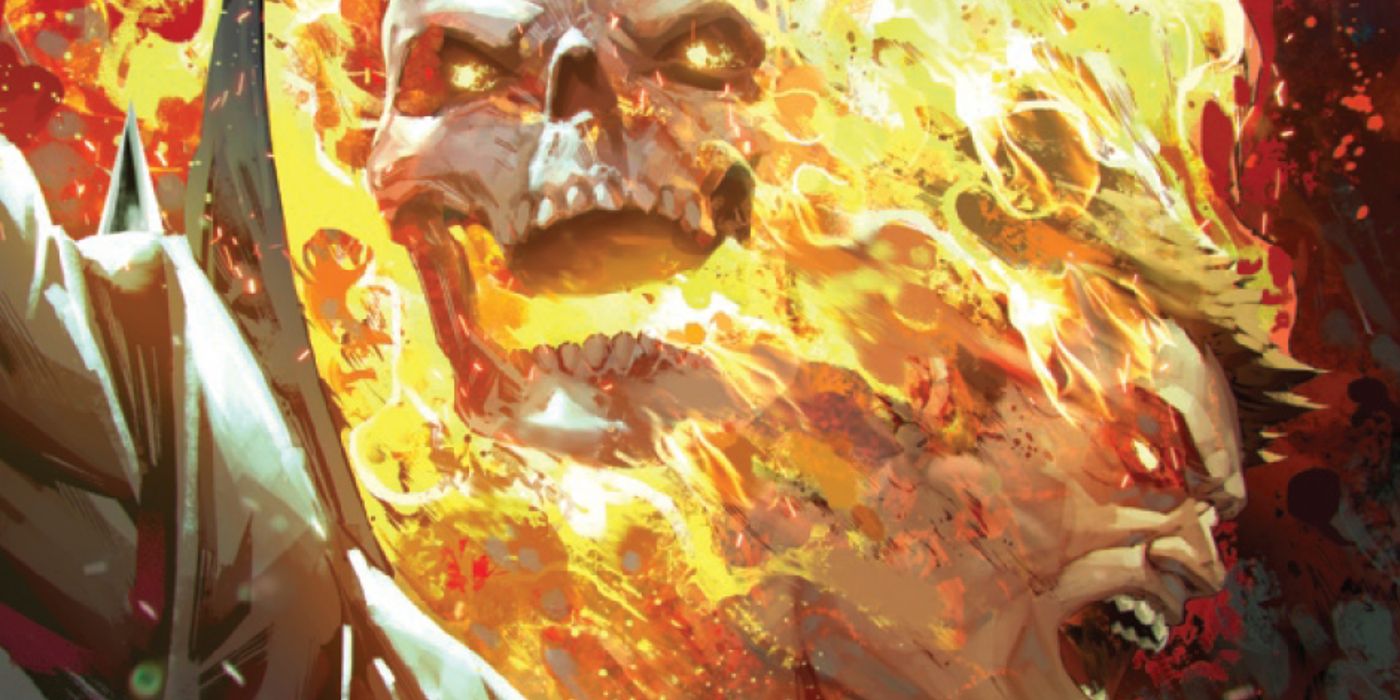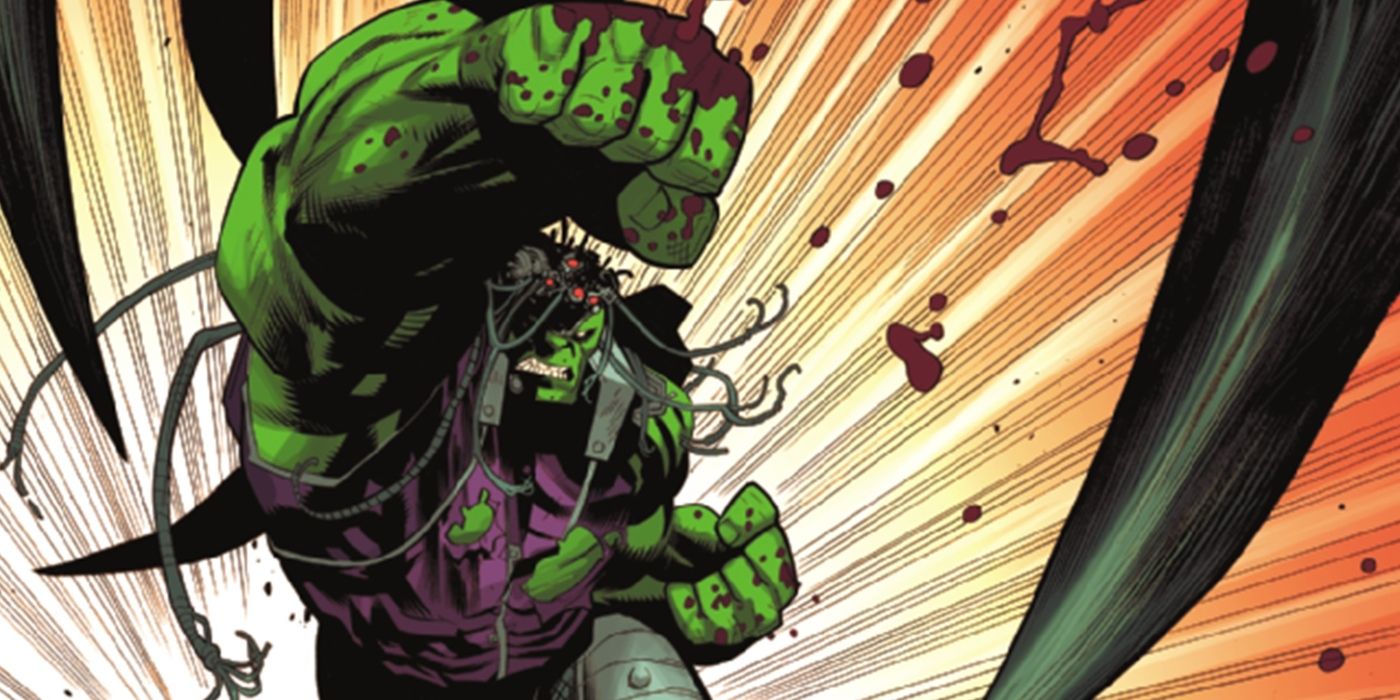Two of Marvel Comics' most tragic characters are the Incredible Hulk and the Ghost Rider. Cursed in one way or another with power beyond control, they both embody the central tenant in the Marvel Universe of power not always being a blessing. For as iconic as these characters' status quos were, however, they've now seemingly switched them entirely.
Ghost Rider now takes full control over Johnny Blaze's amnesiac body, whereas Banner now has total control of the Hulk's body while retaining his intellect. These parallel concepts come from years of development and regression for the Marvel monsters, finally placing them in the exact opposite of their original positions.
Ghost Rider Has Gone From King of Hell to Bodysnatcher

Debuting in Marvel Spotlight #5 and created by Gary Friedrich, Roy Thomas, and Mike Ploog, Ghost Rider, a.k.a. Johnny Blaze, was a motorcycle stuntman years ago. Getting his start in the 1970s, he was one of many horror characters such as Morbius, the Living Vampire introduced to take advantage of loosening Comics Code restrictions. Due to a series of misfortunes and mishaps, he unwittingly made a deal with the devil and became bonded with the demon Zarathos. From then on, Blaze would act as the Ghost Rider, using Zarathos' demonic power to enact brutal vengeance upon those who engaged in wanton sin. Though Zarathos would sometimes take over the handlebars when absolutely forced to, it was Blaze who ultimately controlled Ghost Rider. In fact, it was his humanity and morality that kept the powerful Zarathos from simply unleashing hell on Earth.
Throughout the years, there have been different Ghost Riders, but the mantle has ultimately always returned to Blaze. He had briefly become the King of Hell following Damnation: Johnny Blaze - Ghost Rider, but now, he's back to a far more grounded premise in the first two issues of the new Ghost Rider monthly. Whenever Johnny Blaze sleeps, Zarathos takes complete control of his body, turning into an autonomous Ghost Rider. Likewise, Blaze is otherwise completely mortal, lacking any control over the Rider transformation. This entirely different take on their relationship could be a setup for a more traditional monster portrayal in the Marvel Cinematic Universe. More likely, however, is that it's simply filling the gap for another Marvel character's drastically new transformation.
Banner No Longer Fears the Hulk - He Controls Him

Another big monster in the Marvel Universe is the Incredible Hulk, who debuted in the first issue of his eponymous comic book series. Like many modern Marvel icons, he was created by Stan Lee and Jack Kirby, combining elements of Frankenstein's Monster, Dr. Jekyll and Mr. Hyde, as well as 1950s Sci-fi monster movies. Originally, it wasn't rage that triggered Banner's transformations into the Hulk, but rather the nighttime. This werewolf-like change saw Bruce turn into a grey Hulk, and he had no memory of the Hulk's activities whenever he turned back into a human. As he evolved and his gamma-irradiated body evolved, of course, he gained his more prominent anger-activated green form in his comic's second issue. For most of its existence, the Hulk has been seen as one of the biggest threats to the Marvel Universe, with his designation as a hero constantly teetering more toward full monster status. This made the Hulk a misunderstood menace, one which haunted Bruce Banner more than anyone.
The many forms that the Hulk has taken were consolidated in a way during the events of the now-iconic series Immortal Hulk, where a recently revived Banner gained access to the gamma-powered Green Door. He could cycle through his different Hulk personas, from the violent Savage Hulk to the thuggish grey Joe Fixit Hulk. In his current series, which began with the recent Hulk #1 (by Donny Cates, Ryan Ottley, Frank Martin, and VC's Cory Petit) Bruce Banner has affected a sort of mad scientist personality, insinuating that the threat all of this time wasn't the Hulk, but rather his mild-mannered, puny human alter ego. Piloting the Hulk's now starship-sized body, Banner is able to completely control him through artificial anger, treating him more like a tool than another personality to grapple with.
This is a dark reversal of Ghost Rider's concepts, with the former now taking on Banner's nocturnal, amnesia-causing transformation while the latter is in control of his monstrous alter ego like Ghost Rider once did. As weird as it might seem, these story developments do make some sense. In the case of Ghost Rider, it brings him back to his tragic horror roots, while the pure Sci-fi direction for Hulk builds further upon his origin of scientific "discovery." Marvel's most monstrous heroes are definitely in different places than ever before but said evolutions are still eerily familiar.


